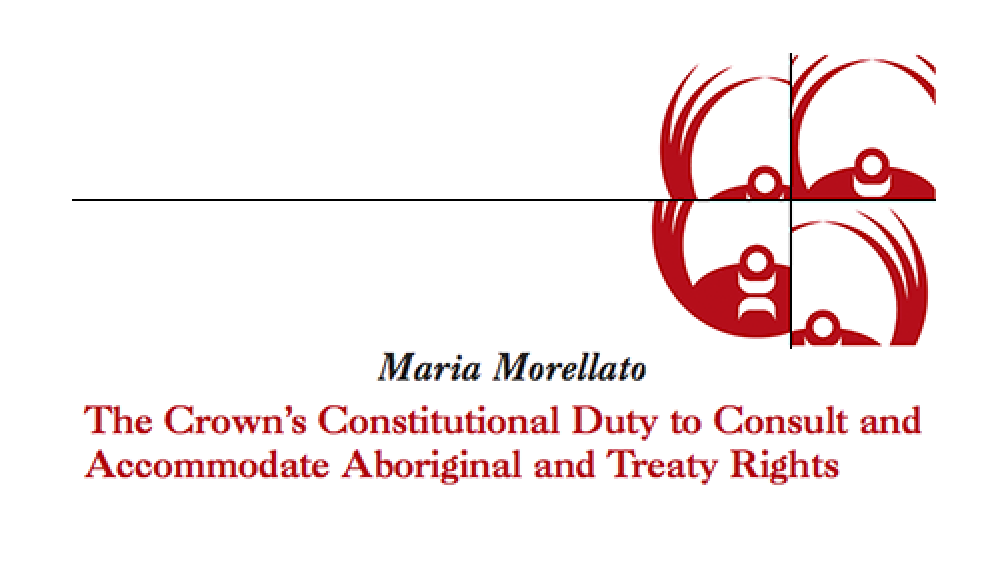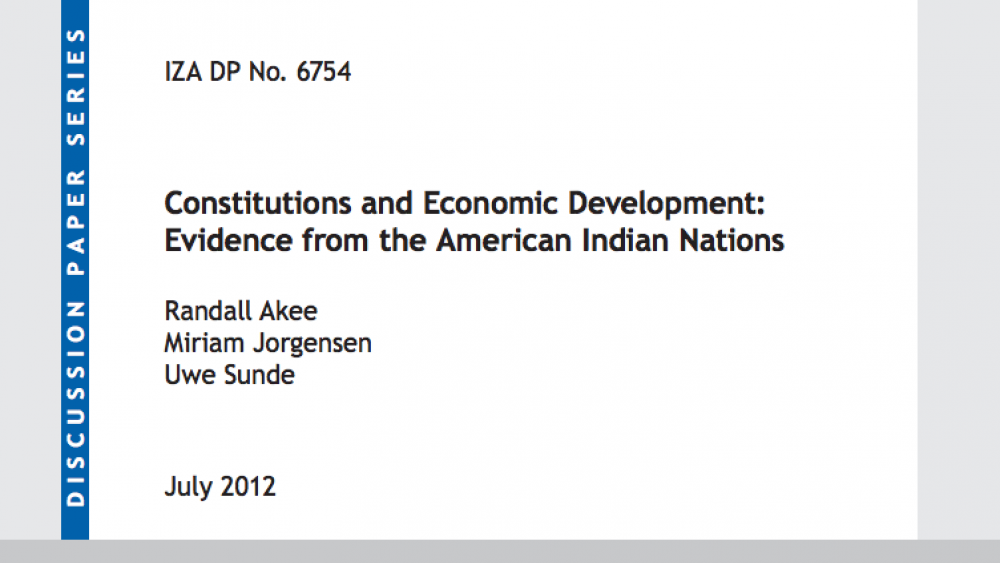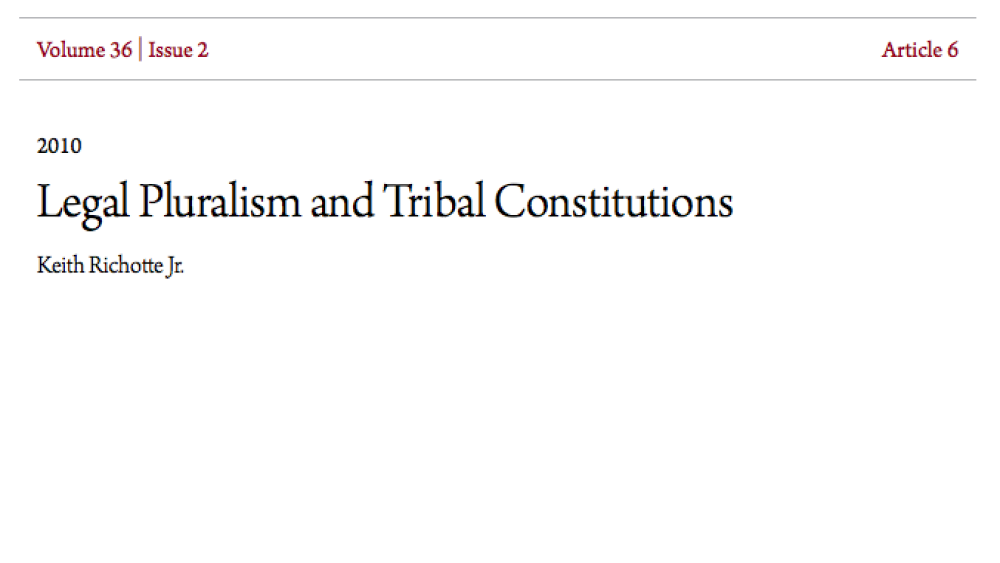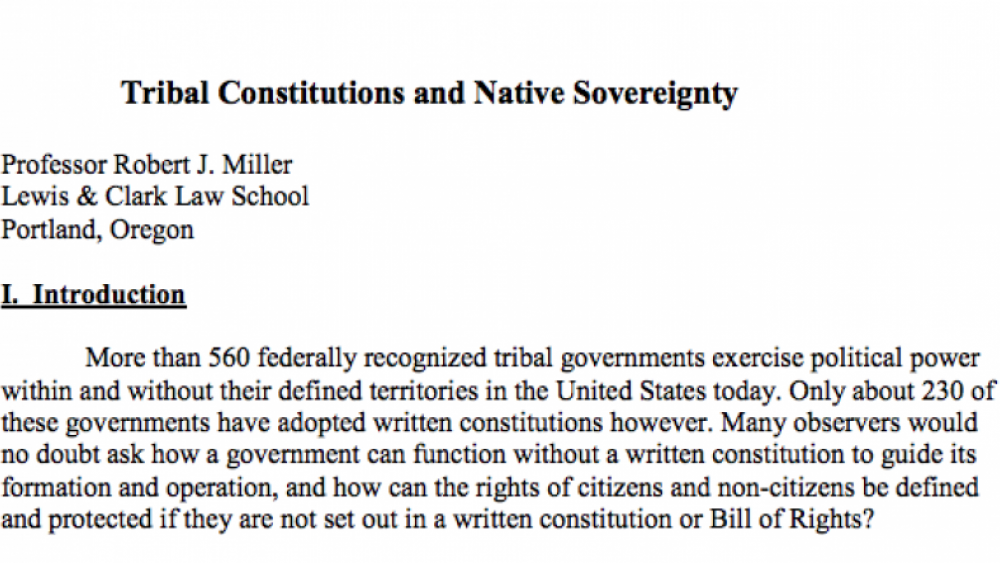Indigenous Governance Database
Constitutions

Like An Ill-Fitting Boot: Government, Governance and Management Systems in the Contemporary Indian Act
Few people are satisfied with the Indian Act, but no one will deny its importance. For the individuals to whom it applies, the Act is a basic and specific constitutional document. It defines their rights and entitlements, their citizenship and their relationship to the federal and provincial…

The Crown's Constitutional Duty to Consult and Accomodate Aboriginal and Treaty Rights
The Crown’s duty to consult and accommodate Aboriginal and treaty rights is a fundamental matter of social justice that invokes very solemn legal obligations. Reconciliation and win-win situations can be achieved with good faith negotiations if the federal and provincial Crown immediately…

Constitutions and Economic Development: Evidence from the American Indian Nations
This paper presents an empirical examination of economic and institutional development. Utilizing a novel data set on American Indian tribal nations we investigate how constitutional design affects economic development, while holding the broader legal and political environment fixed. Instrumental…

Legal Pluralism and Tribal Constitutions
What do pigs roaming the streets of New York City during the first half of the nineteenth century and tribal constitutions have in common? The most obvious (and often the most correct) answer is, undoubtedly, “absolutely nothing.” However, tribal advocates, particularly those concerned with the…

Tribal Constitutions and Native Sovereignty
More than 565 Indigenous tribal governments exercise extensive sovereign and political powers within the United States today. Only about 230 of the native communities that created these governments, however, have chosen to adopt written constitutions to define and control the political powers of…
Pagination
- First page
- …
- 18
- 19
- 20
- …
